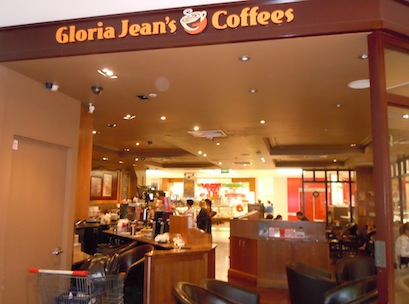 In a torrid week for the retail franchise sector, Retail Food Group (RFG) has been forced to slice $138 million from it first-half results and potentially faces further provisions for FY18 following a strategic business-wide review.
In a torrid week for the retail franchise sector, Retail Food Group (RFG) has been forced to slice $138 million from it first-half results and potentially faces further provisions for FY18 following a strategic business-wide review.
RFG will retain but implement changes to its franchise business model following the review but another major franchisor, Caltex Australia, will abandon its franchise model as it seeks to rollout a new convenience store offer.
RFG plans to close up to 200 stores in Australia by June 2019 due to what the retailer claims are “unsustainable rent and declining shopping centre performance”.
It is understood around one third of the stores to be closed are currently operated as company stores, some of which have been surrendered by franchisees.
Caltex will spend up to $120 million over the next three years to buy out franchisees to deliver what the company claims will be “a consistent consumer offer and experience”.
The Caltex announcement effectively coincided with the release of a damning report by the Fair Work Ombudsman.
The major changes for both RFG and Caltex follow reputational damage to their franchise systems, following franchisee disputes and investigations of under payment of staff.
The surprising aspect of the announcements by both companies in the past week is that they needed external consultants to identify the flaws in their business models and their financial vulnerability.
When the cracks started to show
ASX-listed and based at Southport on Queensland’s Gold Coast, RFG has been relentless in store development and master license agreements in overseas markets.
Launched in 1980 as the owner and manager of 50 Donut King and bb’s Café stores, RFG has been regarded as one of the more successful franchising companies.
The first cracks in RFG’s business emerged last year when the company conceded it was addressing issues in the Michel’s Patisserie chain which had impacted on profitability.
Nevertheless, RFG reported a 27 per cent lift in revenue to $349.3 million for FY17, a figure bolstered by acquisitions, the expanding foodservice operations, 210 new retail outlets and 15 new international territory licenses.
The company’s net profit was up 14 per cent to $75.7 million after substantial increases in some cost centres, particularly marketing costs, which were booked at $2.35 million compared with just $400,000 two years previously.
The increased costs passed on by RFG to franchisees angered them and led to a damaging media investigation of RFG which operates brands including Pizza Capers, Brumby’s Bakery, Michel’s Patisserie, Crust, Esquires, Gloria Jeans and more.
To stem a growing tide of dissatisfaction from Australian franchisees, RFG initiated late last year a 24-month business-wide review project by Deloitte.
Andre Nell, RFG managing director, said when the review was announced at the company’s annual meeting that it would ensure the company’s strategic business model and those of its franchisees are appropriate for a retail market which “remains challenging, particularly for shopping centre tenants”.
Deloitte was also commissioned to evaluate the retailers’ monitoring and supervision framework to ensure franchisee compliance with employee entitlements and workplace laws.
Nell said last week that the Deloitte review was initiated “in response to poor trading results, which were impacted by ongoing challenging retail market trading conditions, especially within increasingly competitive shopping centre locations”.
He said the review was also focused on initiatives to better leverage the company’s diversified growth platform, support franchisee sustainability and improve shareholder value.
According to Nell, key recommendations to come from the work completed to date focus on the simplification of the business and better use of the company’s assets to deliver long-term sustainability to franchisees.
The Deloitte review has already identified that between 160 and 200 stores across RFG’s brands should be closed over the next 15 months.
The company is also pressing for better rental deals where leases are due for renewal.
RFG reported an underlying net profit of $24.7 million for the six months to 31 December 2017, down 31.8 per cent on the same period in 2017.
However, the retailer also booked non-cash impairments and writedowns of $138 million for the half and reported a statutory net loss of $87.8 million for the period.
Included in the provisions on the company’s accounts were writedowns on the carrying value of Michel’s Patisserie of $45 million, Pizza Capers $4.5 million and the coffee retail division that includes Gloria Jean’s Coffee of $34.5 million.
Although he did not refer in the ASX results announcement last week to the impact of negative media coverage about franchising and RFG in particular, Nell said the half-year had been influenced by persistent challenging trading conditions.
Nell said results reflected “persistently tough retail conditions and the cumulative impact of domestic outlet closures in calendar 2017, combined with onerous lease conditions and internal challenges in the management of RFG’s business model”.
RFG’s domestic store network contracted by 66 outlets after 109 store closures in the six months to December 2017 and 43 new store openings, a figure well below the company’s projected growth targets.
Globally, RFG has 2,450 stores and 84 international licensed territories, which arguably helped to put a floor under the company’s share price when the bad news was released to the market last Friday.
Nevertheless, when trading on the ASX opened on Monday, RFG’s share price fell to its lowest level in a decade, touching a $1.03 – half the value at Friday’s close last week – before recovering to around $1.37.
Controversy at Caltex
Like RFG and other franchise systems, notably Domino’s Pizza Enterprises and 7-Eleven, Caltex has endured an agonising and costly period of public and regulatory scrutiny over franchisee disputes and systemic non-compliance with workplace laws.
The convenience retail sector has been a major focus of Fair Work Ombudsman investigations of underpayment of employee wages and entitlements and wages fraud by franchisees.
Caltex established a business review two years ago to assess the sustainability of its franchise store network and to determine the optimal structure for a revamp of its convenience store model.
The company also established a fund to compensate staff who were underpaid by franchisees.
The result of the review and, no doubt, the impact of the adverse publicity and regulatory investigations, Caltex has decided to transition its franchise network of around 433 outlets to company-owned and operated stores by 2020.
Caltex has operated under a hybrid business model with 314 company-owned stores alongside the 433 franchise outlets.
The decision to exit franchising is aligned to the rollout of a new convenience store concept dubbed ‘Foodary’ that is currently being tested in 26 sites.
The announcement of the exit from franchising coincided with the public release of a damning report by the Fair Work Ombudsman that indicated non-compliance rate with workplace laws of 76 per cent in the Caltex service network.
Fair Work Ombudsman Natalie James said Caltex has been presiding over a non-compliant and unsustainable operating model as evidenced by the agency’s investigation of the network that started in late 2016.
The investigation followed reports to the Fair Work Ombudsman of non-payment and underpayment of wages. Cash payments made ‘off the books’, false records and threats of termination or visa cancellation for any workers who complained.





